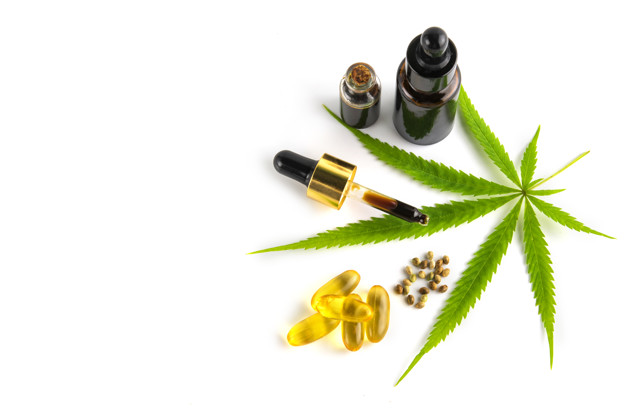
Opioid addiction has become a rampant problem throughout the United States. The opioid epidemic has killed tens of thousands of people, with more than 120 people dying each day after overdosing on opioids.
So many people stay addicted to opioids without seeking treatment because of the side effects of withdrawal. The good news is that there are products that can be used to minimize withdrawal symptoms. CBD has shown a lot of promise as a treatment for those suffering from drug withdrawal. Here’s what you need to know.
What Are Opioids?
Opioids are prescribed by doctors as a way to treat pain because they relax the body. Common prescription opioids include OxyContin, Vicodin, and Percocet. While these drugs are extremely effective in treating chronic pain, they pose the risk of addiction and dependence.
In fact, one study found that 21 to 29 percent of people prescribed opioids for chronic pain misuse them, and 8 to 12 percent of patients develop an opioid use disorder.
The problem is that opioids are highly addictive, and once someone is dependent on an opioid, the withdrawal symptoms can be unbearable. Aide aside from cravings, those addicted to these drugs will experience whole body restlessness and sweating, as well as anxiety, and gastrointestinal issues.
Traditional Treatment Options for Opioid Addiction
Commonly, opioid addiction or opioid misuse is treated using prescription medications that work to ease the withdrawal symptoms and cravings. Those addicted to opioids are also advised to attend counseling, to include behavioral therapy, which can change the user’s behaviors and attitudes that cause them to misuse opioids.
There are also other options, such as peer support groups like Narcotics Anonymous. Talking with others who are also battling opioid addiction can be life-changing for some.
While these traditional options can be effective in helping someone who is addicted to opioids, research has shown that cannabidiol, better known as CBD, may be another option to consider.
What is CBD?
CBD is a chemical compound that naturally occurs in the cannabis and hemp plants. However, legal CBD products, such as those from Green Roads CBD, only contain CBD that’s extracted from hemp plants. This is because the hemp plant has a lower percentage of THC, which is the cannabinoid that has psychoactive effects.
While CBD won’t get you high or make you feel euphoric, it does offer a host of other benefits. Studies have shown that CBD is effective in:
- Relieving chronic pain
- Reducing stress and anxiety
- Improving heart health
- Protecting the brain
CBD may even be helpful in treating some of the most common medical conditions, including heart disease, diabetes, and certain forms of cancer.
So how does CBD offer all of these benefits? While there’s still much research to be done, it’s thought that CBD stimulates and interacts with receptors that are part of the body’s endocannabinoid system.
This system’s main purpose is to maintain homeostasis. It also plays a vital role in the central nervous system, which means it impacts stress, appetite, mood, memory, sleep, and other functions.
What Research Shows
There’s still a lot to learn about CBD, how it interacts with the body, and how it could be an effective treatment for those suffering from drug withdrawal. With that said, research conducted in the last few years has shown that CBD’s interaction with the endocannabinoid system may be greatly beneficial for those suffering from opioid dependence.
One study found that CBD helped those who struggled with anxiety and cravings caused by opioid withdrawal. Participants in the study were given 400 or 800mg of CBD once a day for three days.
The data collected found that CBD offered significant immediate effects when compared to the participants that were given a placebo. Those who were given CBD experienced reduced cravings and lower rates of anxiety. Not only were the positive impacts noted immediately, but the effects also lasted a week post-treatment.
This study suggests that CBD may be an effective treatment in helping those going through opiate withdrawal. CBD may be able to be used to reduce withdrawal symptoms while also improving the quality of life.
What Kind of CBD is Best for Drug Withdrawal?
CBD products are available in many different forms. This means that you’re more likely than not to find a product that meets your needs. While edibles, such as gummies, are definitely the most popular, other options include:
- Tinctures
- capsules
- Vape pens
- Topical products
Not only are CBD products available in different forms, but they’re also available in different strengths and different kinds of CBD. As CBDGrade’s review site shows, there are CBD products that offer dosages as small at 5mg, all the way up to 500mg, and even more.
When it comes to CBD products, there are three different types that can be used. Isolate, broad-spectrum, and full spectrum. CBD isolate is the purest form of CBD and contains none of the other compounds found in the hemp plant, including THC.
Broad-spectrum CBD contains many of the other compounds from the plant, with the exception of THC. Full-spectrum CBD contains everything found in the hemp plant, including trace amounts of THC.
So what kind of CBD is best for those suffering from drug withdrawal? While there’s more research to be done, full-spectrum, lab-tested CBD oil is likely to offer the best effects. This is because full-spectrum CBD contains all of the medicinal and therapeutic compounds found in the plant, including other cannabinoids, terpenes, flavonoids, and other elements.
It’s also critical to only use lab-tested CBD. This is CBD that has been analyzed and certified by a lab to meet certain purity and potency standards.
If you’re someone suffering from drug withdrawal, self-medicating can be dangerous, so it’s best to first discuss with a medical professional.












